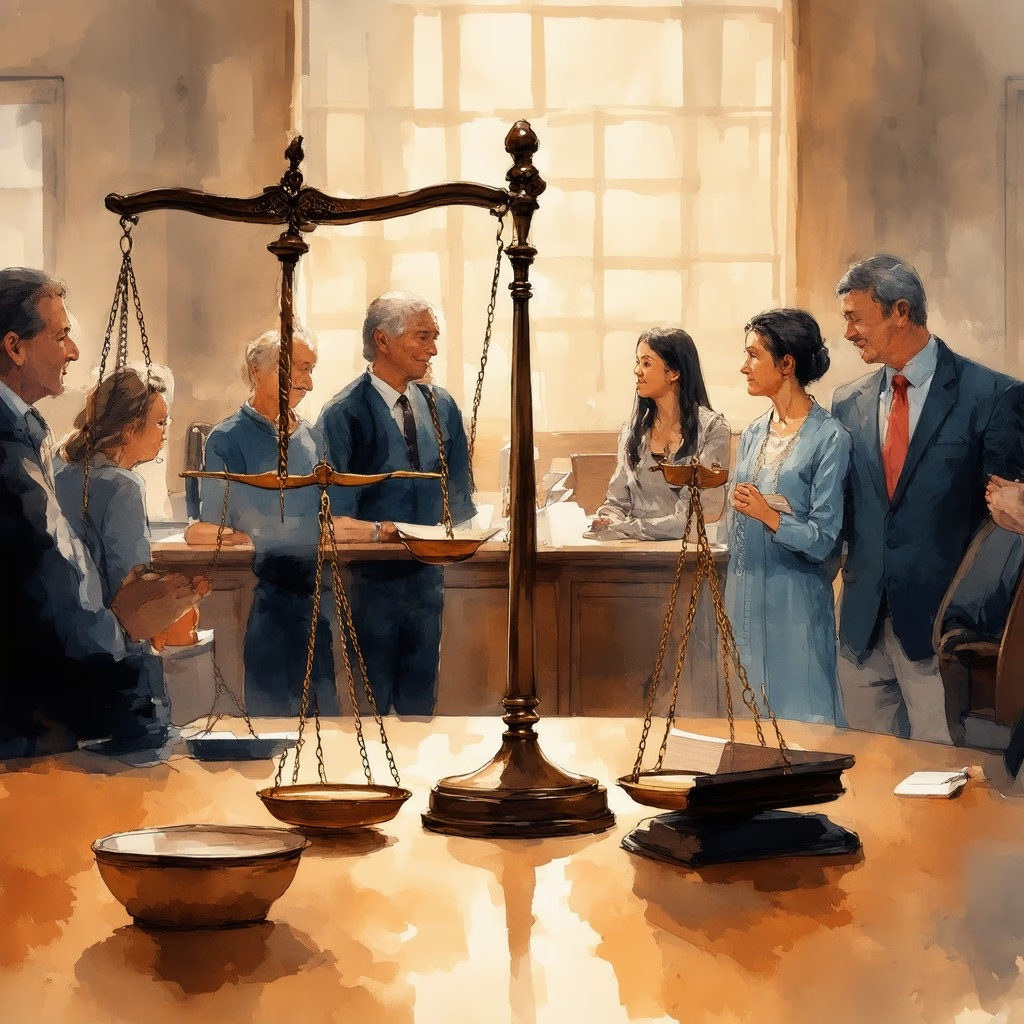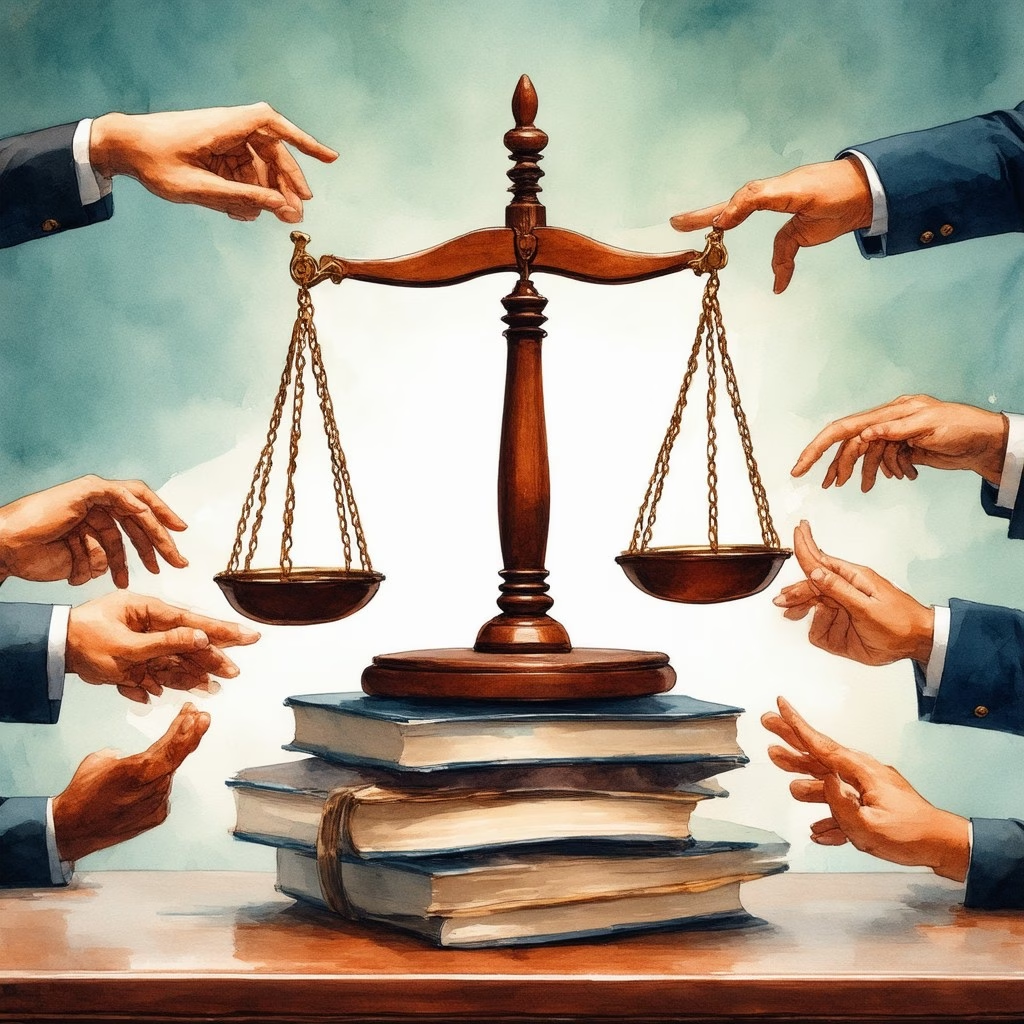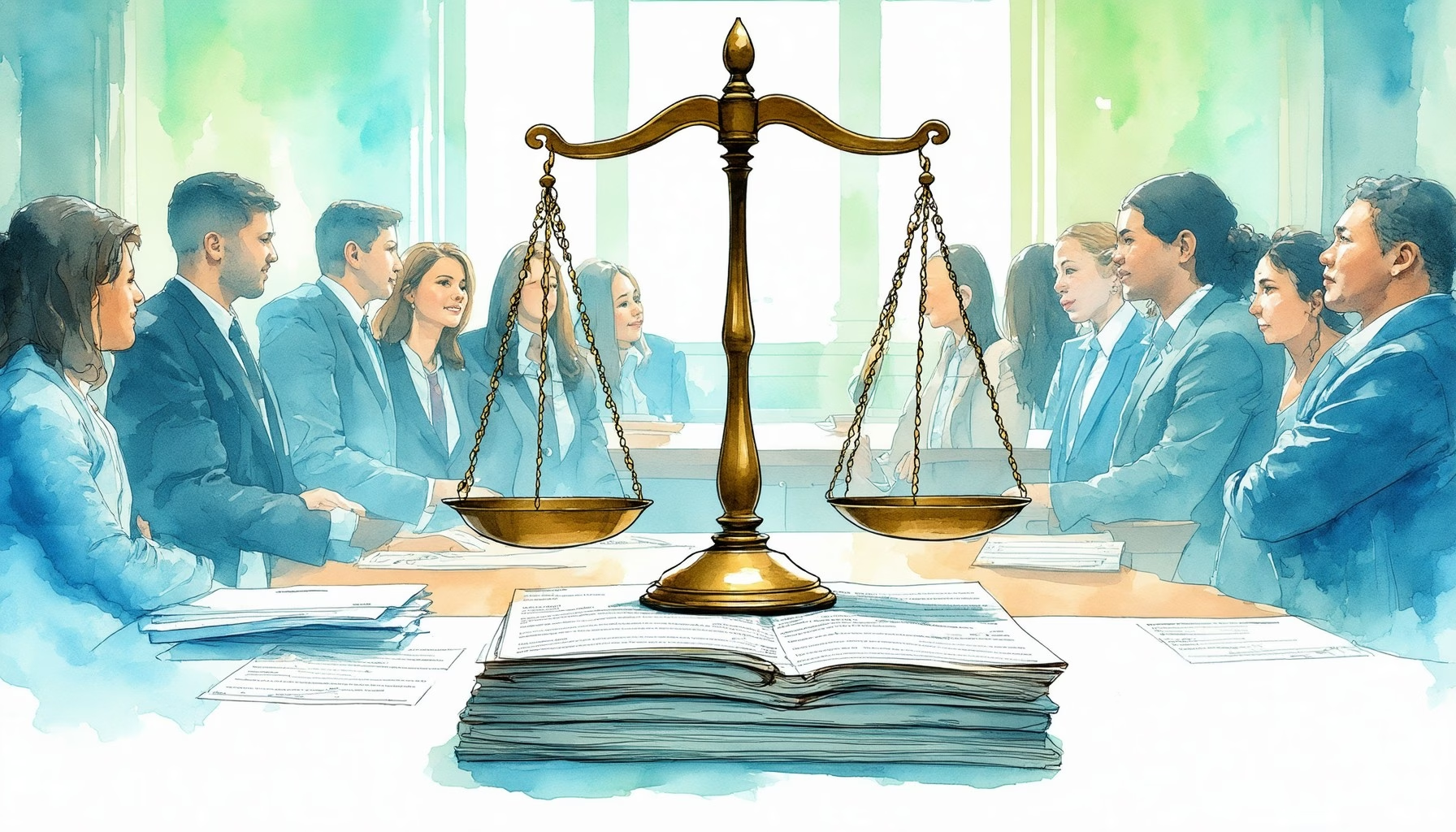Key Takeaways
- Legal aid services provide free legal assistance for low-income individuals, ensuring access to justice without financial burden.
- Eligibility for legal aid typically depends on meeting income limits, often set at 125% to 200% of the federal poverty level.
- Various free legal services are available, including family law, housing issues, and public benefits assistance.
- Applicants can apply for legal aid through local organizations or online, often receiving initial consultations at no cost.
- Resources like the Legal Services Corporation and local legal aid offices offer guidance for securing legal representation.
- For those who do not qualify for legal aid, low-cost options and pro bono services are available to assist with legal matters.
Navigating the complexities of the legal system can be daunting, especially when financial constraints make hiring a lawyer seem impossible. In this essential guide on how to get legal aid for court, we will explore the various avenues available for securing legal assistance free of charge. From understanding the income limits that determine eligibility to uncovering the types of free legal services available, this article aims to empower you with the knowledge needed to access the support you deserve. We will delve into critical questions such as how much does legal aid cost? and what is the difference between legal aid and a private lawyer?, while also providing insights on resources for free lawyers for low-income families. Whether you are seeking a free lawyer for family court or need guidance on legal aid qualifications, this comprehensive guide will serve as your roadmap to obtaining the legal support you need.
How much does legal aid cost?
Overview of Legal Aid Costs
Legal aid services are primarily designed to assist individuals who cannot afford legal representation. The cost of legal aid is typically free, as these services are provided by not-for-profit organizations funded through government grants, donations, and other sources. To qualify for legal aid, applicants must meet specific income and asset criteria, which vary by state. Generally, individuals earning below 125% to 200% of the federal poverty level may be eligible for assistance.
Factors Influencing Legal Aid Costs
Several factors can influence the availability and extent of legal aid services:
- Eligibility: Legal aid organizations assess applicants based on income, assets, and the type of legal issue. Those who qualify often receive services at no cost.
- Types of Services: Legal aid organizations offer a range of services, including:
- Family law (divorce, custody)
- Housing issues (evictions, landlord disputes)
- Public benefits (food stamps, unemployment)
- Immigration matters
- Application Process: Interested individuals can apply for legal aid through local legal aid offices or online platforms. Many organizations provide initial consultations at no cost.
- Additional Resources: For those who do not qualify for legal aid, low-cost legal services may be available through pro bono programs or sliding scale fees based on income. Websites like LawHelp.org can guide users to local resources.
- Government Support: The Legal Services Corporation (LSC) is a significant source of funding for legal aid programs across the United States, ensuring that low-income individuals have access to necessary legal assistance.
For more detailed information on eligibility and services, visit the Legal Services Corporation website or consult local legal aid offices.

How Much Does Legal Aid Cost?
Understanding the costs associated with legal aid is crucial for individuals seeking assistance. Legal aid services are designed to provide support to those who cannot afford legal representation, but the costs can vary based on several factors.
Overview of Legal Aid Costs
Legal aid is often provided at little to no cost for eligible individuals. Many legal aid organizations operate on a sliding scale, which means that fees may be adjusted based on your income and financial situation. In some cases, legal aid services are completely free, especially for low-income families. It’s essential to inquire about any potential costs when applying for legal aid, as some organizations may charge nominal fees for specific services.
Factors Influencing Legal Aid Costs
Several factors can influence the costs associated with legal aid:
- Type of Legal Issue: Different legal matters may have varying costs. For instance, family law cases, such as divorce or custody disputes, may incur different fees compared to housing or employment issues.
- Income Level: Your income level plays a significant role in determining eligibility for free legal services. Many organizations adhere to the Federal Poverty Guidelines to assess eligibility.
- Location: The availability and cost of legal aid can differ by region. Urban areas may have more resources, while rural areas might have limited options.
- Organization Policies: Each legal aid organization has its own policies regarding fees and services. It’s advisable to check with the specific organization to understand their fee structure.
What is the Maximum Income to Qualify for Legal Aid?
Determining your eligibility for legal aid is essential, and understanding the income limits is a key part of this process. Legal aid organizations typically use the Federal Poverty Guidelines to establish these limits.
Understanding Legal Aid Income Limits
To qualify for legal aid, income thresholds are primarily determined by the Federal Poverty Guidelines, which are updated annually. Here are the key points regarding maximum income limits for legal aid eligibility:
- 125% of Federal Poverty Guidelines: This is the most common threshold used by Legal Aid organizations funded by the Legal Services Corporation (LSC). For example, in 2023, this would equate to an annual income of approximately $16,100 for an individual and $33,125 for a family of four.
- 200% of Federal Poverty Guidelines: Some Legal Aid organizations may have more flexible income criteria, allowing individuals with incomes up to 200% of the Federal Poverty Guidelines to qualify for assistance. This would mean an annual income of about $25,520 for an individual and $53,000 for a family of four in 2023.
- Variable Income Limits: Specific income limits can vary significantly depending on the Legal Aid organization and the type of legal case involved. Certain organizations may consider additional factors such as household size, expenses, and the nature of the legal issue.
For the most accurate and up-to-date information, individuals seeking legal aid should consult the specific Legal Aid organization in their area or visit the Legal Services Corporation website. Additionally, resources like Gov Guider can provide guidance on eligibility and available services.
What is it called when you can’t afford a lawyer?
When someone cannot afford a lawyer, several terms and resources are relevant. The most common term is indigent, which refers to individuals who lack sufficient financial resources to pay for legal services. Indigency is often assessed based on income and asset criteria. In criminal cases, individuals who cannot afford a private attorney are entitled to representation by a public defender, a lawyer employed by the government to provide legal defense.
Additionally, legal aid organizations offer free or low-cost legal assistance to those who meet specific income thresholds. These services typically cover civil matters, such as housing, family law, and consumer issues. Many attorneys also provide pro bono services, meaning they offer their legal expertise without charge to assist individuals in need, particularly in civil cases.
Numerous nonprofit organizations exist to help low-income individuals access legal services. These organizations often focus on specific areas of law and can provide valuable resources. Websites like LawHelpCalifornia.org provide information on finding free or low-cost legal help, while the American Bar Association offers a directory of resources for locating free legal assistance across the United States. For more detailed information, individuals can consult the American Bar Association’s resources or local legal aid organizations to understand their rights and options for obtaining legal representation.
Resources for Those Who Can’t Afford a Lawyer
If you find yourself in a situation where you need legal assistance but lack the funds to hire a lawyer, there are several resources available to help you navigate your legal challenges:
- Legal Aid Organizations: Many states have legal aid organizations that provide free or low-cost legal services to low-income individuals. These organizations can assist with various legal issues, including family law, housing disputes, and consumer rights. You can find a list of local legal aid offices through the Legal Services Corporation.
- Pro Bono Services: Many attorneys offer pro bono services to assist those in need. You can contact your local bar association to find attorneys who provide free legal assistance in your area.
- Public Defenders: If you are facing criminal charges and cannot afford a lawyer, you have the right to a public defender. This attorney will represent you in court at no cost.
- Online Resources: Websites like Gov Guider provide comprehensive guides on how to access free legal help and resources tailored to low-income families.
Utilizing these resources can help ensure that you receive the legal support you need, even when financial constraints make hiring a private attorney challenging.
What Does Maryland Legal Aid Help With
Maryland Legal Aid provides essential legal services to low-income individuals and families throughout the state. Their comprehensive offerings include:
- Legal Representation: Maryland Legal Aid offers statewide legal representation for various civil matters, ensuring that low-income residents have access to justice.
- Foreclosure Prevention: They assist homeowners facing foreclosure by providing legal advice and representation to help negotiate with lenders and explore alternatives to foreclosure.
- Eviction Prevention: The organization helps tenants at risk of eviction by offering legal counsel and representation in housing court, aiming to secure stable housing for vulnerable populations.
- Workforce Legal Services: Maryland Legal Aid addresses employment-related issues, including wrongful termination, wage disputes, and discrimination, empowering individuals to understand and assert their rights in the workplace.
- Family Law Services: They provide assistance with family law matters, including child custody, child support, and domestic violence cases, ensuring that families receive the legal support they need.
- Public Benefits: Maryland Legal Aid helps clients navigate the complexities of public benefits programs, including food assistance, healthcare, and disability benefits, to ensure they receive the support they are entitled to.
For more information on the services offered, individuals can visit the Maryland Legal Aid website or consult the People’s Law Library, which provides a wealth of resources on legal rights and services available in Maryland.
How to Access Maryland Legal Aid Services
Accessing Maryland Legal Aid services is straightforward and designed to assist those in need. Here are the steps to follow:
- Visit the Maryland Legal Aid Website: Start by visiting the Maryland Legal Aid website, where you can find detailed information about the services available and eligibility requirements.
- Contact the Local Office: Reach out to your local Maryland Legal Aid office directly. They can provide personalized assistance and guide you through the application process.
- Gather Necessary Documentation: Prepare any required documents that demonstrate your income and legal needs. This may include pay stubs, tax returns, or eviction notices.
- Complete the Application: Fill out the application form available on the website or provided by the local office. Ensure all information is accurate to avoid delays.
- Follow Up: After submitting your application, follow up with the office to check on the status and provide any additional information if requested.
By taking these steps, you can effectively access the legal assistance you need through Maryland Legal Aid, ensuring that your rights are protected and upheld.

Free Lawyers for Low-Income Families
Finding free lawyers for low-income families can be a crucial step in navigating legal challenges without the burden of high costs. Many organizations and resources are dedicated to providing legal assistance free of charge, ensuring that financial constraints do not hinder access to justice.
How to Find Free Lawyers for Low-Income Families
To locate free legal services, consider the following steps:
- Research Local Legal Aid Organizations: Many states have legal aid societies that offer free or low-cost services to eligible individuals. Websites like Legal Services Corporation can help you find local resources.
- Utilize Online Directories: Websites such as Nolo provide directories of free legal services and pro bono lawyers who are willing to assist low-income families.
- Contact Law Schools: Many law schools have legal clinics where students provide free legal assistance under the supervision of licensed attorneys. This can be a valuable resource for those seeking legal advice for free.
- Check Community Resources: Local non-profits and community organizations often have partnerships with legal professionals who offer their services pro bono. Look for organizations that focus on family law, housing, or public benefits.
Benefits of Using Free Legal Services
Utilizing free legal services can provide numerous advantages:
- Cost Savings: Accessing free lawyers for low-income families eliminates the financial burden of legal fees, allowing families to allocate resources to other essential needs.
- Expert Guidance: Free legal services often come from experienced attorneys who can provide valuable insights and representation in various legal matters, including family law and housing disputes.
- Increased Access to Justice: By providing legal assistance to those who cannot afford it, free legal services help ensure that everyone has a fair chance in the legal system, promoting equality and justice.
- Support for Vulnerable Populations: Free legal services are particularly beneficial for low-income families facing critical issues such as eviction, custody battles, or domestic violence, ensuring they receive the help they need.
Free Lawyers for Low-Income Families
How to Find Free Lawyers for Low-Income Families
Finding free lawyers for low-income families can significantly alleviate the stress of legal issues. Here are some effective strategies to locate these resources:
1. **Legal Aid Organizations**: Many states have legal aid organizations that provide free legal services to low-income individuals. You can search for local legal aid offices through the [Legal Services Corporation](https://www.legalservices.gov/) website.
2. **Pro Bono Services**: Many law firms offer pro bono services, where attorneys volunteer their time to assist those who cannot afford legal representation. Check with local bar associations or law schools, as they often have programs connecting clients with pro bono lawyers.
3. **Online Legal Resources**: Websites like [Nolo](https://www.nolo.com/) and the [American Bar Association](https://www.americanbar.org/) provide directories of free legal services and resources tailored for low-income families.
4. **Community Resources**: Local community centers, churches, and non-profit organizations may also offer legal assistance or can refer you to free legal services available in your area.
5. **Legal Hotlines**: Many states have legal hotlines that provide free legal advice over the phone. These hotlines can help you understand your rights and direct you to appropriate legal resources.
By utilizing these resources, low-income families can access the legal assistance they need without incurring significant costs.
Benefits of Using Free Legal Services
Utilizing free legal services offers numerous advantages for low-income families:
– **Cost Savings**: The most obvious benefit is the financial relief from not having to pay for legal representation. This allows families to allocate their limited resources to other essential needs.
– **Access to Expertise**: Free legal services often come from experienced attorneys who specialize in various areas of law, ensuring that clients receive knowledgeable guidance.
– **Empowerment**: Accessing legal aid can empower families by helping them understand their rights and options, enabling them to make informed decisions regarding their legal matters.
– **Comprehensive Support**: Many legal aid organizations provide holistic support, addressing not just legal issues but also connecting families with social services, housing assistance, and other resources.
– **Community Impact**: By utilizing free legal services, families contribute to a broader movement that advocates for justice and equality, helping to create a more equitable legal system for all.
For more information on how to get free legal help, visit [Gov Guider](https://govguider.com/navigating-how-to-get-free-legal-help-your-guide-to-legal-aid-free-attorney-consultations-and-resources-for-low-income-families/).
How to Get a Free Lawyer for Family Court
Securing a free lawyer for family court can be a crucial step for individuals facing legal challenges, especially for those with limited financial resources. Understanding the process and available resources can significantly ease the burden of navigating the legal system.
Steps to Secure a Free Lawyer for Family Court
To obtain a free lawyer for family court, follow these essential steps:
- Assess Your Eligibility: Determine if you qualify for legal aid based on your income and the nature of your case. Many legal aid organizations have specific income limits that you must meet.
- Contact Local Legal Aid Organizations: Reach out to local legal aid offices or non-profit organizations that offer free legal services. Websites like Legal Services Corporation can help you find resources in your area.
- Gather Necessary Documentation: Prepare documentation that demonstrates your financial situation, such as pay stubs, tax returns, and any relevant court documents. This information will be crucial when applying for legal assistance.
- Complete an Application: Fill out an application for legal aid. This may involve providing details about your case and your financial circumstances.
- Follow Up: After submitting your application, follow up with the organization to check on the status of your request and to ensure all necessary information has been received.
Resources for Family Court Legal Assistance
Several resources can assist you in finding free legal help for family court matters:
- Free Family Law Advice: This resource provides essential tips for low-income families seeking legal assistance.
- Low-Income Family Lawyers: Explore options for low-income family lawyers who can provide support.
- American Bar Association: The ABA offers a directory of legal aid organizations and resources across the United States.
- Nolo: This site provides a wealth of information on legal topics, including how to find free legal services.




